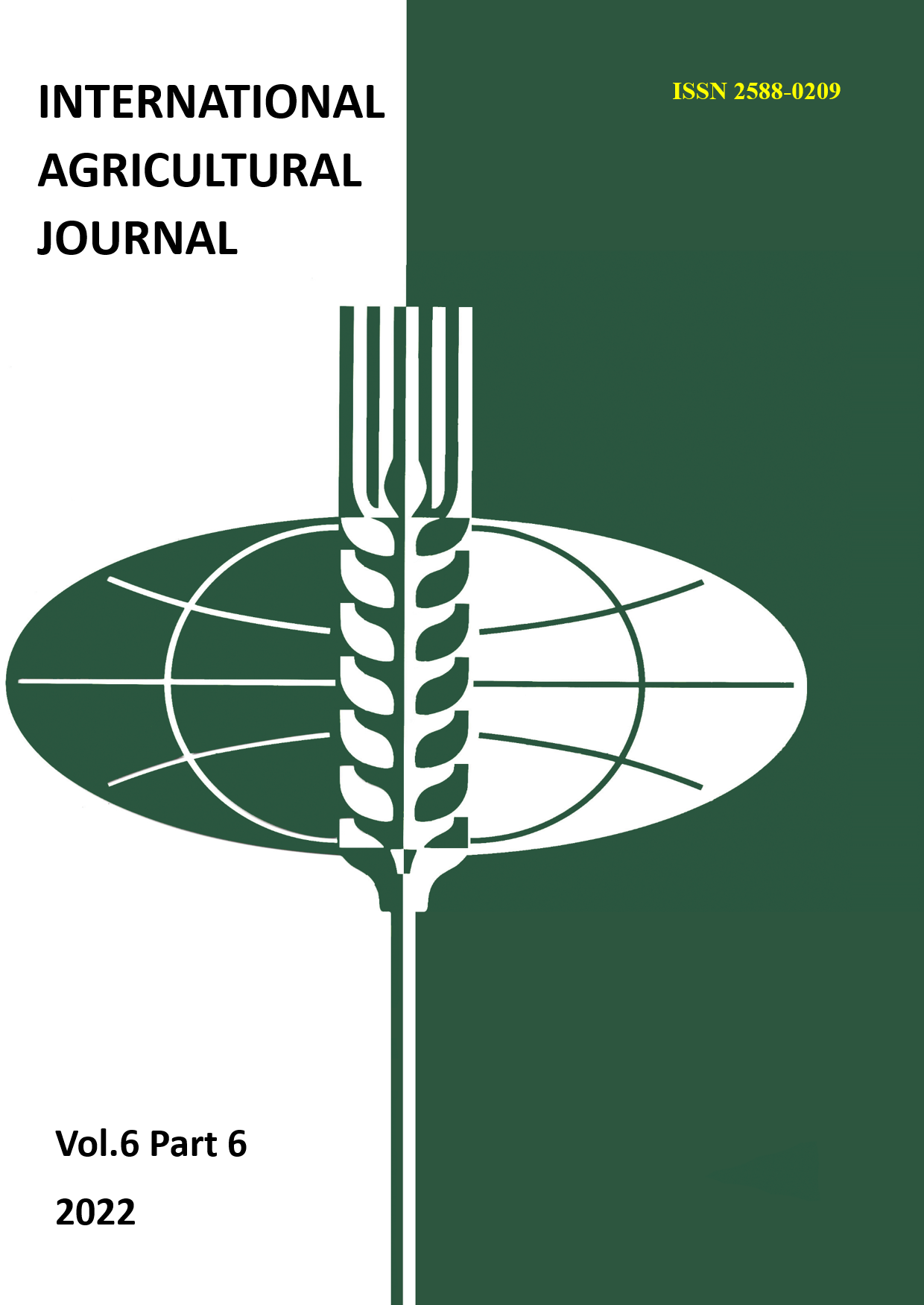DEVELOPMENT OF TOOLS FOR PROMOTING INNOVATION IN CROSS-INDUSTRY SUPPLY CHAINS
Main Article Content
Abstract
The article is devoted to the actual problems of formation of the culture of creation and implementation of innovations. The modern innovation process encompasses cross-industry linkages and the promotion of value creation along supply chains. The innovation culture of an individual enterprise as the core of its economic culture is essentially a derivative of the general innovation landscape in which the enterprise is located within the framework of intersectoral and spatial relationships. The article discusses hypotheses and directions for the development of an innovative culture of a sustainable supply chain, and tools for promoting innovation.
The set of goals and objectives of the presented research is focused on the search and development of organizational and methodological tools for the formation and promotion of an innovative culture within the framework of intersectoral supply chains based on the principles of closed cycle bioeconomics and sustainable development. The subject of the study is a set of problems and tools for their solution in the field of promotion of innovative technologies and the formation of innovative culture at the level of the intersectoral supply chain, interpreted by the authors as a specific element of economic culture as a separate economic entity and the cultural landscape formed as a result of intersectoral communications. The object of the study is the processes, connections and phenomena of the culture of innovation at the level of intersectoral supply chains, implemented in the forestry, pulp and paper and printing segments of production.
Materials and methods of research. A research body of literature in the field under study, regulatory documents, including the Strategy for the Development of the forest complex until 2030.
The results of the study: - the theoretical provisions on the formation of the economic (innovative) culture of supply chain participants in the intersectoral complex of the forestry, pulp and paper and printing sectors are summarized;
- the directions of promotion of innovations of the printing enterprise on the basis of the principles of sustainability and bioeconomics of a closed cycle are generalized.
- The Eco-Printing service model is formulated as a tool for promoting innovations along the supply chain based on approaches to promote innovative eco-oriented production and consumption.
The results can be used in innovation management, organization of communication and intercultural relations within the framework of the production of CBP and printing products, further scientific research.
Article Details
References
2. Ksenofontova, T. YU. Rol' instituta zashchity intellektual'noj sobstvennosti v innovacionnom razvitii / T. YU. Ksenofontova, E. S. Kosonogova // Sovremennye aspekty ekonomiki. – 2020. – № 2(270). – S. 110–120. – EDN DXVONE.
3. Polyanskaya O. A. Lesnoj sektor Rossii. Perspektivy razvitiya // Sovremennye aspekty ekonomiki. 2015. № 9 (217). S. 5–7.
4. Napravleniya razvitiya lesopil'noj promyshlennosti/Tambi A.A., SHvec V.L., Polyanskaya O. A., Lavrov M. F./ V sbornike: materialy nauchno-prakticheskoj konferencii s mezhdunarodnym uchastiem. 2018. S. 251–255.
5. 1Jian Ni, Jun Zhao, Lap Keung Chu, Supply contracting and process innovation in a dynamic supply chain with information asymmetry, European Journal of Operational Research, Volume 288, Issue 2, 2021, Pages 552-562, ISSN 0377-2217, https://doi.org/10.1016/j.ejor.2020.06.008.
6. Marjanke A. Hoogstra-Klein, Kars Meijboom, A qualitative exploration of the wood product supply chain – investigating the possibilities and desirability of an increased demand orientation, Forest Policy and Economics, Volume 133, 2021, 102606, ISSN 1389-9341, https://doi.org/10.1016/j.forpol.2021.102606.
7. Stephan Vachon, Robert D. Klassen, Green project partnership in the supply chain: the case of the package printing industry, Journal of Cleaner Production, Volume 14, Issues 6–7, 2006, Pages 661-671, ISSN 0959-6526, https://doi.org/10.1016/j.jclepro.2005.07.014.
8. Tomasz Grzegorczyk, Managing intellectual property: Strategies for patent holders, The Journal of High Technology Management Research, 2020, 100374, ISSN 1047-8310
9. Emrah Karakilic, Rethinking intellectual property rights in the cognitive and digital age of capitalism: An autonomist Marxist reading, Technological Forecasting and Social Change, Volume 147, 2019, Pages 1-9
10. Amanda Hellström, Sara Nilsson, Mikael Andersson, Ulf Håkanson, Intellectual property for generating value for start-up companies in key enabling technologies, Biotechnology Research and Innovation, Volume 3, Issue 1, 2019, Pages 80-90

